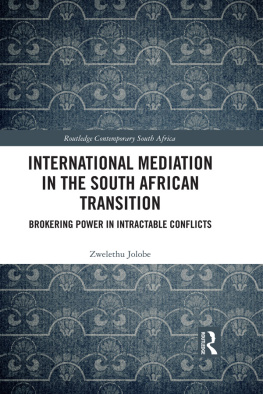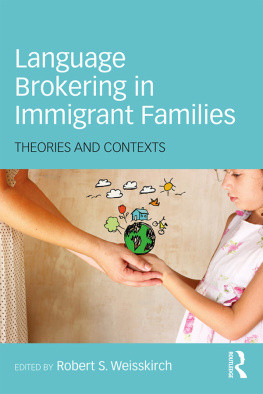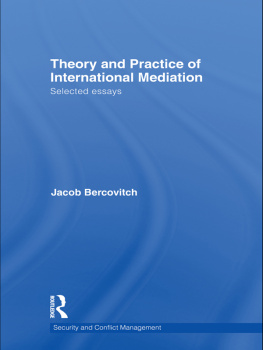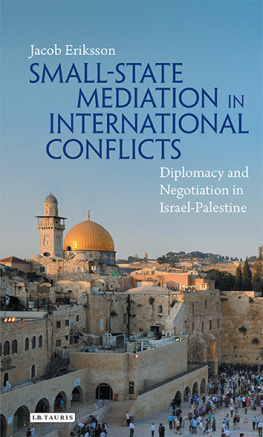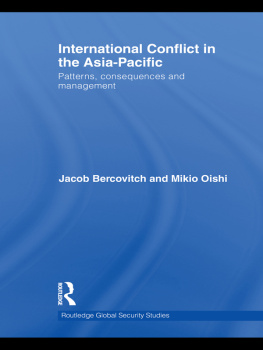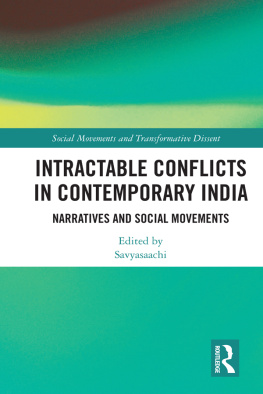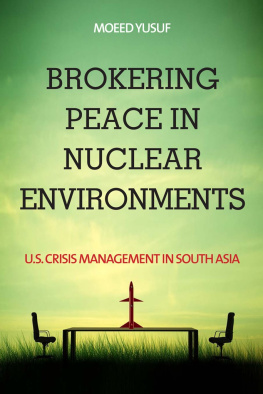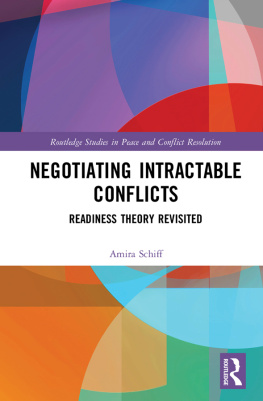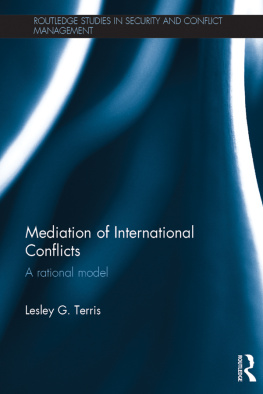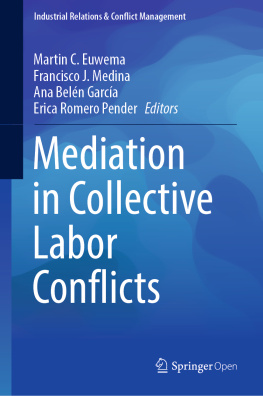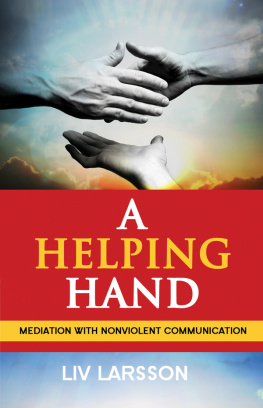International Mediation in the South African Transition
This book challenges the conventional understanding of South Africas transition to democracy as a home-grown process through a comparative analysis of Commonwealth and United Nations mediation attempts.
Approaching power transition through the lens of South Africa, Zwelethu Jolobe raises questions about how methods and types of mediation are understood, and their appropriateness for certain stages of negotiation processes . International Mediation in the South African Transition calls into question the generalisations about the determinants of success by international third parties in resolving internal conflicts. It moves from the position that the success of a mediation effort depends on the examination of the time horizon of a conflict and on the contribution the mediation effort plays in improving the relationship between the belligerents. The book argues that the international community, particularly the Commonwealth and the United Nations, played a profound and beneficial role in the political transition to end apartheid.
International Mediation in the South African Transition will be of interest to students and scholars of African politics, conflict resolution, international relations and global governance.
Zwelethu Jolobe is a senior lecturer in political studies at the University of Cape Town, South Africa.
Routledge Contemporary South Africa
#FeesMustFall and Youth Mobilisation in South Africa
Reform or Revolution?
Musawenkosi W. Ndlovu
Rights-based Litigation, Urban Governance and Social Justice in South Africa
The Right to Joburg
Marius Pieterse
Mining and Community in South Africa
From Small Town to Iron Town
Edited by Lochner Marais, Philippe Burger and Deidr van Rooyen
Reversing Urban Inequality in Johannesburg
Edited by Melissa Tandiwe Myambo
Uprooting University Apartheid in South Africa
From Liberalism to Decolonization
Teresa Barnes
International Mediation in the South African Transition
Brokering Power in Intractable Conflicts
Zwelethu Jolobe
First published 2019
by Routledge
2 Park Square, Milton Park, Abingdon, Oxon OX14 4RN
and by Routledge
52 Vanderbilt Avenue, New York, NY 10017
Routledge is an imprint of the Taylor & Francis Group, an informa business
2019 Zwelethu Jolobe
The right of Zwelethu Jolobe to be identified as author of this work has been asserted by him in accordance with sections 77 and 78 of the Copyright, Designs and Patents Act 1988.
All rights reserved. No part of this book may be reprinted or reproduced or utilised in any form or by any electronic, mechanical, or other means, now known or hereafter invented, including photocopying and recording, or in any information storage or retrieval system, without permission in writing from the publishers.
Trademark notice: Product or corporate names may be trademarks or registered trademarks, and are used only for identification and explanation without intent to infringe.
British Library Cataloguing-in-Publication Data
A catalogue record for this book is available from the British Library
Library of Congress Cataloging-in-Publication Data
Names: Jolobe, Zwelethu, author.
Title: International mediation in the South African transition: brokering
power in intractable conflicts/Zwelethu Jolobe.
Description: New York, NY: Routledge, 2019. | Series: Routledge
contemporary South Africa; 6
Identifiers: LCCN 2018059766 (print) | LCCN 2018060797 (ebook) |
ISBN 9781351020589 (Ebook) | ISBN 9781351020572 (Adobe
Reader) | ISBN 9781351020565 (Epub) | ISBN 9781351020558
(Mobipocket) | ISBN 9781138496804 (hardback)
Subjects: LCSH: South AfricaPolitics and government19481994. |
South AfricaPolitics and government1994 | Peace-building
South AfricaInternational cooperation. | Mediation, International.
Classification: LCC DT1945 (ebook) | LCC DT1945.J65 2019 (print) |
DDC 968.06dc23
LC record available at https://lccn.loc.gov/2018059766
ISBN: 978-1-138-49680-4 (hbk)
ISBN: 978-1-351-02058-9 (ebk)
Typeset in Times New Roman
by Apex CoVantage, LLC
In memory of my father, Dr Siviwe Jolobe (19442018)
1
Introduction
Conventional wisdom has it that South Africas negotiated transition to democracy was a home-grown process with no significant international mediation. The general argument is that the two main protagonists, the South African government and the African National Congress (ANC) simply rejected any form of mediation, as a significant and sufficient amount of trust had developed between them, mainly through various confidence-building measures in the 1980s. Authors such as inter alia Sparks (1994), Waldmeir (1997), Harvey (2001) and Esterhuyse (2012) detail such encounters in depth. International participation in the transition in the form of the Commonwealth Eminent Persons Group in 1986, and the United Nations Observer Mission, that intervened after negotiations broke down in 1992, are either viewed as failed attempts, or do not conform to mediation (Saunders, 2014: 4). The conclusion reached is that sufficient trust existed between the parties because of the confidence-building measures among the adversaries before the formal negotiations, and this was enough to make international mediation unnecessary. Further, both parties thought that the likely outcome would be better for them without such mediation (Saunders, 2014: 1).
This book problematises these conceptions about the negotiation process in South Africa on two counts. First, no such trust existed between the government and the ANC throughout the entire negotiation process. While these 1980s encounters did improve understanding between the intermediaries representing government officials, and certain representatives of the ANC, this cannot be equated to trust between the government and the ANC. Building trust was not their function. Their importance was that they were a forum that facilitated the exchange of communication between the government and the ANC in their search for negotiated solutions. These secret forums, the book will argue, are a type or method of mediation. Further, the basic points of discussion in these forums, i.e. linking the release of political prisoners and unbanning of prohibited political parties with the initiation of a political process, emerged within the context of the Commonwealth mission. The Commonwealths Eminent Persons Group resolving formula, the Negotiating Concept, was prophetic; it embodied the basic ingredients that formed the basis of negotiations between the ANC and the government, leading to the Groote Schuur Minute on 2 May 1990, and Pretoria Minute on 6 August 1990. In this unfolding political process there was no love lost between the government and the ANC. The book will closely examine this contribution by the Commonwealth and locate the analysis within the negotiation process. The reasons why historians of the South African transition have not examined the significance of the Commonwealth mission, and the way it synchronised crucial preconditions, has to do with the way in which international mediation is understood, the second item of contention.
Second, the South African literature misconceives the complexity of international mediation and fails to problematise it. Thus, when questioning the role of international mediation in the transition, the examination is not done within the context or in relation to the scholarly literature on mediation. Mediation is either defined by a method or individual e.g. a Richard Holbrooke, George Mitchell, Kofi Annan, Thabo Mbeki or a Western Contact Group as in the case of Namibia, where disputants are directly mediated, and its success is equally misconstrued, i.e. it produced an agreement, the parties rejected it, people stopped fighting, etc. Thus, the Commonwealth mission is dismissed because the South African Defence Force sent them packing via air strikes in neighbouring countries, and the United Nations Observer Mission did not directly mediate the Multi-Party Negotiation Process. No attempt is made to evaluate success or failure within the context of scholarly debates on mediation outcomes. Through an examination of these scholarly debates on international mediation, the book will show that international mediation can cover a wide range of third-party activities: from simply providing good offices for the parties to negotiate, to assisting them in creating a resolving formula to their conflict, in which the mediator uses resources to leverage an agreement. Mediation is a political process and the mediator can assume different roles in that process, and there is no obligation on the part of the conflicting parties to accept the mediation ideas or proposals. Therefore, the task is to understand what type or method the Commonwealths mediation was, and how it performed in that phase of the conflict. Similarly, the United Nations Observer Mission was created by a Security Council Resolution. There was a political process that occurred before that involving discussions between the international community, the conflicting parties and the deployment of a Special Representative. This was equally a distinct type or method of mediation.

